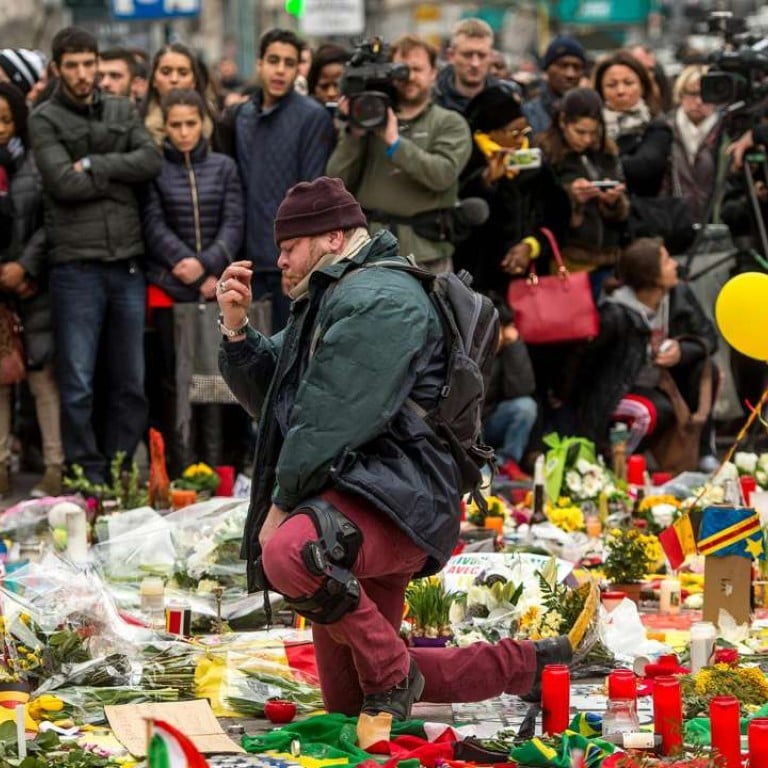
Brussels bombings make clear terrorist networks cannot be defeated in isolation
Niall Ferguson says a good grasp of how networks spread ideas and influence suggests that the way to destroy Islamic State and its likes is to counter them with a network of our own
I have lost track of the number of times I have read that a terrorist network carried out the lethal attacks in Brussels. Terrorists used to belong to “groups” and “organisations”. Increasingly, however, we say they belong to networks.
Networks cannot be beheaded, any more than the Hydra of Greek mythology could be killed by a single blow
This is more than a matter of semantics. For we stand no chance whatsoever of defeating Islamic State (IS) if we fail to understand the significance of its being a true network. Barack Obama declared recently that “killing the so-called caliph of the Islamic State, Abu Bakr al-Baghdadi, is one of the top goals” of the final year of his presidency. Secretary of State John Kerry has argued that Islamtic State was resorting to terrorism in Europe because “their fantasy of a caliphate is collapsing before their eyes. Its territories are shrinking, its leadership has been decimated by coalition attacks, its cash flow is drying up, and its fighters fleeing.”
Both these statements betray a fundamental misunderstanding of the enemy we face. The US president is so proud of his achievement in authorising the assassination of Osama bin Laden that he thinks he can decapitate IS by the same means. But the point about a network is that you cannot easily decapitate it. It is not a hierarchical structure, with an all-powerful leader at the top. Mr Kerry, too, is making a mistake in measuring the strength of IS in terms of territory, leadership and cashflow. It may call itself a state, but IS is really a network. And you do not measure the strength of a network in those terms.

Understanding must be our weapon of choice to beat terrorism, whether in Brussels or Lahore
Newspaper depictions of the terrorist network responsible for the Brussels attack typically show around six people. But this, too, misrepresents the problem, because these people were part of the same network as the dozen or so perpetrators of the Paris attacks of November last year; as is the man arrested last week, Reda Kriket.
The fact of the matter is that 99 per cent of people who use the term “network” have no idea what it really means. So let’s begin with the six degrees of separation. Each of us is no more than six degrees of separation away from everyone else on the planet. The American sociologist Stanley Milgram called this “the small-world problem”.
Think of IS as the Facebook of Islamic extremism
In some ways, of course, it is not a problem at all. Our ability to connect over long distances is the reason that good ideas spread. Without network effects, there would have been no scientific revolution, no Enlightenment, no Industrial Revolution. The trouble is that they are just as good at spreading bad ideas as good ones.
Think of IS as the Facebook of Islamic extremism. When it started out in 2004, Facebook was just a bunch of nerdy Harvard undergraduates. Today it has more than 1.5 billion users. When IS started out in 2006, it was just a bunch of Iraqi jihadists. Today, according to data from the Pew Research Centre, IS has a minimum of 63 million supporters – and that is based on opinion polls in just 11 countries.
Only a very small minority of members of the IS network need to carry out acts of violence to kill a very large number of people indeed. Naively, the US government talks about “countering violent extremism”. But what makes the network so deadly is precisely the non-violent extremism of the majority of its members. Some preach jihad: they are the hubs around which clusters of support form. Some tweet jihad, with each tweet acting as a link to multiple other nodes. Non-violently, the network grows.

Global cooperation key to defeating Islamic State
If IS were a hierarchical state run by al-Baghdadi, killing him might well hurt it. But IS is a network and networks cannot be beheaded, any more than the Hydra of ancient Greek mythology could be killed by a single blow. True, some networks are vulnerable to targeted attacks on key hubs: that is true of the world wide web, for example, or the power grids in some countries. But if the network is sufficiently decentralised – and I suspect this one is – then even a hundred drone strikes against its supposed leaders would not destroy it. Indeed, they might even strengthen it by reinforcing the martyrdom mania that is central to its ideology. IS may turn out to be “anti-fragile” (in Nassim Taleb’s invaluable term): our attacks could make it stronger.

Anyone who, having read this far, still thinks that it would help matters for Britain to leave the European Union has not been paying attention. Underfunded and overstretched it may be, the Europol, the EU’s law enforcement agency, is at least the beginning of the network we need to build if we are to stand a chance against IS.
Just as McChrystal broke down the silo walls of American military bureaucracy, turning Joint Special Operations Command into a war-winning force, so today the West’s intelligence and security forces need to get networked as never before.
It takes a network to defeat a network. Those eight words – McChrystal’s Law – are the true lesson of Brussels. They may also be the best argument against Brexit.
Niall Ferguson is Laurence A Tisch professor of history at Harvard and a senior fellow of the Hoover Institution, Stanford

